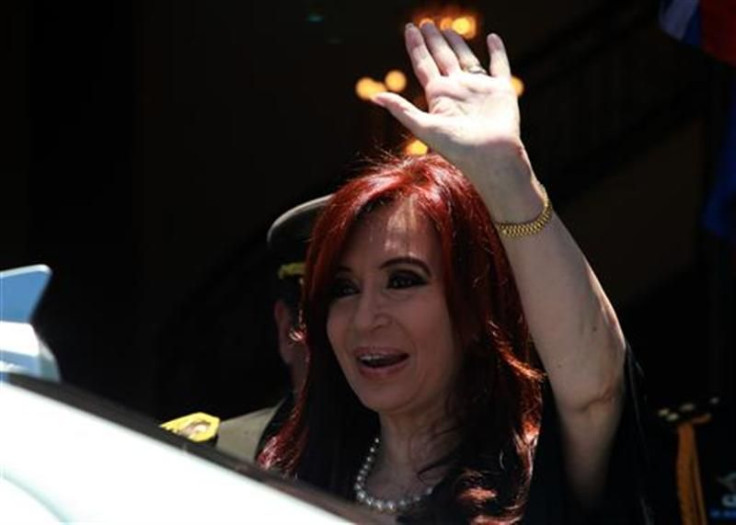Argentina 'Probably' In Recession, No Growth Expected This Year - Report

Argentina, South America's third-largest economy, is "probably" in the midst of a recession and won't register meaningful growth this year amid high inflation and weak industrial output, according to a new report.
The country's inflation is estimated around 20 to 25 percent and could increase over 30 percent in coming years if the government continues to increase its deficit, according to Capital Economics' third quarter Latin America report, released Tuesday.
"The next 12 months are shaping up to be the most challenging since the 2008-09 financial crisis for Latin America," said the report. "In Argentina, inflation is likely to drift higher despite a deepening recession. Meanwhile, growing strains in the balance of payments point to further a weakening of the peso."
Capital Economics said Argentina's foreign exchange rate for its peso is at least 30 percent overvalued and predicts flat GDP this year and a 2 percent contraction in 2013. An index managed by Torcuato Di Tella University in Buenos Aires also indicated in June that there was a 99 percent that the country would enter a recession in the near-term
Argentina registered 8.9 percent growth in 2011 on the strength of car and grain exports. But the recent slowdown in Europe and its nieghbor Brazil has led to staggering economic activity. Argentina's vehicle production fell 24.4 percent in May on an annual basis and its vehicle exports fell 45 percent.
In July, President Cristina Fernandez ordered the country's largest backs to lend $3.3 billion with interest rates of no more than 15 percent, thought to be below the real inflation rate. In April, Argentina's government nationalized oil company YPF SA (NYSE: YPF), formerly a unit of Spain's Reposol SA (PINK: REPYY), following disputes over imports. The Spanish government called the move a "hostile decision," and analysts consider the country to be unattractive for foreign investors. UBS AG, for exampl, downgraded Reposol shares from Buy to Neutral.
Argentina previously had a major economic crisis between 1999 to 2002, after the peso was bound to the U.S. dollar and the government borrowed heavily from the International Monetary Fund. It defaulted on $95 billion in debt and later unbound the peso from the dollar.
© Copyright IBTimes 2025. All rights reserved.





















